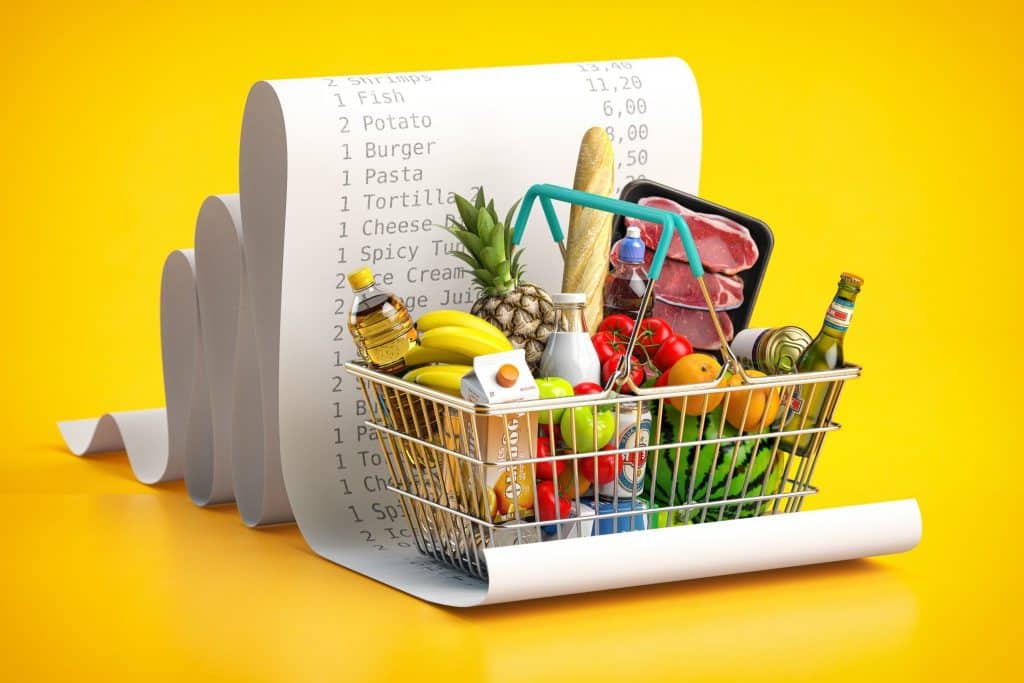In 2025, the price of everything seems to be stretching further than your wallet. From eggs to olive oil, weekly food runs now rival utility bills. If you are trying to save on groceries without sacrificing quality or sanity, you are not alone.
Whether you are shopping for a big family or just feeding yourself, cutting back does not mean going without. It means shopping smarter. This guide walks you through budget hacks that actually work in today’s economy. Real strategies. Real savings. And yes—still real food on the table.
Create a Grocery Budget Before You Shop
The first—and most ignored—rule if you want to save on groceries? Make a plan. Wandering into a store without a list is like walking into a casino with your rent money. Budgeting helps you avoid impulse buys and keeps you focused on needs, not wants.
Use simple budgeting tools like:
- A spreadsheet or printable planner
- Mobile apps like EveryDollar or Goodbudget
For step-by-step budgeting strategies, check out the Budgeting section at Finance Finest.

Shop Once a Week, Not Every Day
Grocery trips are like social media scrolls—each one opens the door to temptation. Every extra visit is another chance to overspend. Consolidating your shopping trips to once a week (or less) means fewer opportunities for impulse buying and more discipline.
Plan your meals in advance and only buy what you need for that specific time frame. You will not just save on groceries—you will also save time and mental energy.
Meal Planning Is Not Optional
If you are serious about finding ways to save on groceries, meal planning is a non-negotiable habit. Start by looking at what is already in your fridge and pantry. Base your meals around those items first.
Stick to recipes with overlapping ingredients so nothing goes to waste. Apps like Mealime and Plan to Eat make it easier to plan and prep with minimal food loss.
For lifestyle tips that blend budgeting with better eating, visit the Lifestyle section of Finance Finest.
Use Store Loyalty Programs and Cashback Apps
You are already spending money—why not get some of it back? Signing up for store loyalty programs is one of the simplest ways to save on groceries. Combine those discounts with cashback apps, and you are doubling down on your savings.
Top-rated cashback tools:
These apps let you earn points or cash for items you were going to buy anyway. And if you shop online for groceries, those savings can stack up quickly.
Buy Generic Without Fear
Let go of the brand loyalty myth. In many cases, store-brand products are made by the same manufacturers as name brands—minus the fancy packaging.
Whether you are buying oats, canned beans, or frozen veggies, generic options help you save on groceries without any sacrifice in quality. Do a blind taste test at home. Odds are, you will not tell the difference.
Use the Unit Price Tag Like a Pro
Ever noticed those tiny numbers next to the main price tag on grocery shelves? That is the unit price, and it is your best friend when comparing similar products.
Example: Two bottles of olive oil—one is $6.99 and the other is $8.99. But the $8.99 bottle gives you more per ounce. When you divide the cost by quantity, it may be cheaper in the long run.
Get into the habit of using unit prices to truly save on groceries—especially for staples you buy regularly.
Master the Art of Freezing and Storing
Wasting food is like throwing money in the trash. Learning how to properly freeze and store your groceries extends their life and protects your budget.
Tips:
- Freeze overripe bananas for smoothies.
- Use ice cube trays for leftover broth or sauces.
- Store herbs in damp paper towels to prevent wilting.
This practice not only helps you save on groceries, but also reduces your environmental footprint. Win-win.
Shop in Bulk (Selectively)
Buying in bulk can either be brilliant or disastrous. The trick is to only bulk-buy things you use often and know will not spoil quickly.
Go big on:
- Rice
- Pasta
- Canned goods
- Toilet paper (not a grocery, but still relevant)
Avoid bulk purchases for:
- Fresh produce
- Bread (unless you freeze it)
- Dairy (unless used quickly)
Places like Costco and Sam’s Club are great, but only if you have storage space and a plan. Otherwise, you might be wasting money instead of finding ways to save on groceries.
Do Not Shop When You Are Hungry
It is not a myth. Shopping hungry actually makes you more likely to buy unnecessary items. Your stomach overrides logic. Suddenly, frozen pizza and five types of cheese feel like essential purchases.
Eat a snack before hitting the store. A full belly leads to better decisions—and helps you stick to your plan to save on groceries.

Try Budget Grocery Stores
Discount grocery chains are growing in popularity for a reason. Places like Aldi, Lidl, and Grocery Outlet offer serious savings without sacrificing freshness.
Many of them skip the frills (no fancy lighting or free samples), but the price difference is real. Shopping at budget chains is one of the fastest ways to save on groceries week after week.
Cook More, Order Less
Takeout is tempting, especially after a long day. But one meal delivery can cost the same as two or three home-cooked dinners. If you want to save on groceries and overall food costs, limit your takeout nights.
Batch cooking can help. Prepare meals in advance on weekends so you are not tempted to order out during the week. One-pot dishes, sheet pan meals, and slow-cooker recipes are your best friends.
Use Leftovers Wisely
Leftovers are not a punishment—they are a second chance at dinner. Instead of letting them rot in the back of your fridge, repurpose them creatively.
Examples:
- Last night’s grilled chicken becomes today’s burrito filling.
- Veggie stir-fry can become an omelet topper.
- Rice can turn into a fried rice dish or soup base.
Being smart with leftovers is a low-effort way to save on groceries without feeling like you are eating the same thing every night.
Take Advantage of Farmers’ Markets (Late)
Shopping at farmers’ markets can be expensive—unless you go near closing time. Vendors are often willing to drop prices rather than pack up unsold items. Bring cash, shop late, and ask politely. You might score produce at half the price. And since it is fresh, it lasts longer too. Yet another way to save on groceries in a smarter, fresher way.
Grow Your Own (Even Just a Bit)
You do not need a backyard to grow food. Even a few pots on a windowsill can produce herbs like basil, cilantro, or mint. These are high-cost items at the store but cheap and easy to grow at home.
Start small. One herb garden can shave dollars off your grocery bill every week. It is a fun and eco-friendly way to save on groceries without much effort.
Track Grocery Spending Weekly
If you are not tracking, you are guessing. And guessing is the enemy of financial control. Use a simple budgeting app or a spreadsheet to review your weekly grocery spend. Did you overspend? Did anything go to waste? What could be improved?
Tracking helps you stay accountable—and it is the best way to reinforce your goal to save on groceries for the long haul. Dive deeper into the mindset shift needed for better habits by exploring the Mindset section of Finance Finest.
Shop Online for Price Comparisons
Online grocery shopping platforms allow you to compare prices across stores without leaving home. Use this to your advantage.
Sites like Instacart or Flipp make it easy to scan sales, apply coupons, and avoid impulse buys altogether. Plus, you can see your total in real-time before checking out—making it easier to save on groceries without surprises at the register.

Smart Habits Make the Difference
At the end of the day, learning how to save on groceries is not about finding one magic trick—it is about developing a smart, repeatable system that fits your lifestyle.
The strategies that work in 2025 are the ones rooted in awareness, planning, and follow-through. From budgeting tools to cashback apps and homegrown herbs, it is all about stacking small wins that add up to meaningful savings. And remember, your mindset is key. Every dollar you save here gives you more flexibility in the rest of your budget—and less stress about your monthly spending.
Explore smarter money habits at Finance Finest—because budgeting should work, not hurt.
